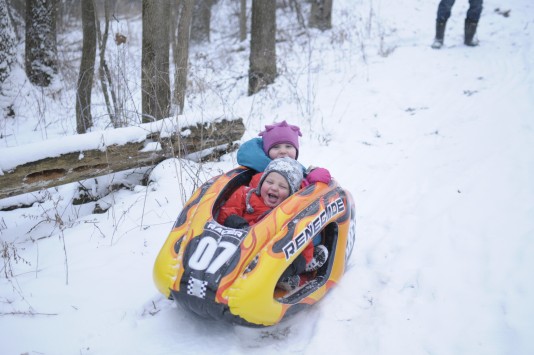 How Winter Affects Our Sleep
How Winter Affects Our Sleep
Without question, seasonal changes impact our sleep. Here are 4 ways the winter gives sleep the cold shoulder, but some tips on how you can keep your family’s rest in check all winter long.
1. Lack of Light – Darker days are upon us, especially for our friends in very northern locations. Let’s remember that darkness boosts production of melatonin in our bodies. Melatonin is a hormone we ALL produce, but our bodies produce more of in the absence of light. Increased darkness and melatonin production can mean we feel unusually sleepy and sluggish.
Sleeperific Tip: Ensure exposure to light each and every day, especially in the mornings upon morning rising, or the time you would like to encourage rising. Consider using broad spectrum UV light bulbs for particularly dark and/or dreary locations.
2. Cold, dry air – The cold air outside is already dry, then add to it the affects of drying heat inside homes. Both of these types of air dry out our mucous membranes, making a great opportunity for germs and viruses to enter our bodies, but dry nose, throat and mouth make sleep increasingly difficult.
Sleeperific Tip: Encourage your family to drink lots of fluids. Consider humidifying the air in your home or bedrooms. Choose a cool mist humidifier (warm mist humidifiers are breeding grounds for bacteria) which can be easily cleaned. Pajamas and bedding choices should be seasonally appropriate.
3. Eating Habits – Summer months tend to bring an abundance of fresh foods but winter months tend to focus on a different type of fare. Calorie rich foods often start with Halloween, and carry through Hanukah, Christmas, New Year’s and even on to Valentine’s Day. Heavy meals, especially late in the day can disrupt sleep by increasing reflux in prone bodies, but also impacting sleep quality by having an active digestive system.
Sleeperific Tip: Being hungry can disrupt sleep as much as being over-full. Encourage eating big meals at least 2 hours before bedtime for older children, possibly with a small, healthy snack before bed.
4. Decreased Activity Levels – Combine the shortened daylight hours with bone chilling temperatures, and we’re all prone to hibernate. We’re less likely to get outside for physical activity, especially with our children.
Sleeperific Tip: Prioritize time for even short bursts of physical activity during the light hours of the day. Consider moving activities indoors with child friendly gymnasiums and indoor play centres.
